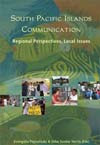
By Josephine Latu: Pacific Media CentreWhen Solomon Islanders at the launch of
Being the First were each handed a copy of the book, the general reaction was one of “awe”.
The book is the first ever to document the lives of leading Solomon Islands women from their own point of view, and the first published historical account of achievements by local women over the past 50 years.
It will be launched in New Zealand later today at AUT University.
“They all kind of picked it up and held it close to them – bringing it to their chest. It was quite emotional,” says Suzanne Bent-Gina in Honiara, describing how women responded when given a copy of the book to keep – free.
Bent-Gina, deputy director of the Regional Assistance Mission to Solomon Islands’ (RAMSI) Machinery of Government programme, helped organise the book project as part of its component on women in government.
A former Prime Minister and current Solomon Islands Speaker of Parliament, Sir Peter Kenilorea, introduced the book to a packed house, where many were village women who came in the capital for the International Women’s Day celebrations.
Five of the 14 women featured in the book, along with the sister of the late Phyllis Taloikwai, also profiled, read extracts from their chapters.
Emotional moments“They were all very emotional and proud when they spoke,” says AUT’s professor Marilyn Waring of the Institute of Public Policy, who co-edited the manuscript with Malaita-born Dr Alice Aruhe’eta Pollard.
The two thought of the book idea in 2008 while discussing how to get Solomon Islands academic theses from Australian and New Zealand universities back to the islands for local readership.
“There are hardly any books written by Solomon Islanders out there. There are anthropological books, travel guides, photographic books – but all written by outsiders,” says Waring.
“Some [Solomon Islands]‘big men’ have written books, but not much information about women. These women who were previously hidden from history are now on public record.”
The pioneering volume includes personal life stories of 14 women, many who grew up poor but went on to break barriers as politicians, heads of government departments, and community workers.
Ruth Liloqula tells how she was born outside her village in a bush, took care of orphans at her boarding school at age 11, then had her first taste of activism when she and others marched in protest against unfair government scholarship selections.
Liloqua was the first female Secretary to Cabinet and is now the Permanent Secretary of Lands, Housing and Survey, and outspoken about cultural attitudes towards gender roles.
‘Average woman’“[Women] see themselves as subordinates. This is the main problem I see … There’s an ingrained thing that we do not assert ourselves,” she says in the book.
Ethel Sigimanu, Permanent Secretary for Women, Youth and Children’s Affairs, prefers to be treated as an “average woman”, despite her leadership role.
“I was not born with a silver spoon in my mouth, so to get where I am is not impossible. I grew up in rural places and went to rural schools. The first time I went to Pawa [Senior Primary School] my father gave me $2. I was going to be away for a whole year,” she tells in the book.

Meanwhile, in the political arena, Hilda Kari talks about the lack of support she found from male colleagues over the span of her career.
She has been the only female Member of Parliament in the Solomon Islands since 1978.
“I could not name any real men supporters – none at all,” the book quotes in her profile.
Frustrated with unequal treatment at work, Kari ran for Parliament and was voted in for three consecutive elections. After losing her seat in 2001 and 2006, she now supports a quota system to ensure women’s representation at decision making levels.
All the women acknowledged the support of their husbands, families and friends along the way.
‘Transformative experience’Co-editor Waring, a former New Zealand MP, said putting the book together was a “transformative experience” that involved many helpers.
She and Pollard recruited ex-Public Service Commissioner Catherine Adifaka – a “known leader and someone [the women] would trust” – to conduct the interviews.

Cynthia Wickham, a Solomon Islands marine science graduate, worked from a boat out at sea, translating and transcribing the oral-centred pidgin language.
Local RAMSI staff provided technical assistance.
Being the First: Storis Blong Oloketa Mere Lo Solomon Aelan was finally published by AUT’s Pacific Media Centre for RAMSI and the Institute of Public Policy.
In an all-woman production team, the PMC’s Del Abcede designed the book and Isabella Rasch created the cover montage.
Waring is hoping to get funding for a similar project in the future.
Decision-makingShe said that since the launch, the Solomon Islands Ministry of Education has been working to integrate the book into its secondary school curriculum for English and Social Science.
“This book has taken us another step towards the advancement of women into decision-making positions,” Sigimanu announced at the launch.
“These are ordinary women who were not born with silver spoons in their mouths. They too, have had to struggle with the challenges of life – like being able to afford to get their children to school,” she said.
“It is about people looking at where they are now, and seeing that women can indeed rise up – and can do great things for this country.”
 Being the First
Being the First will be launched in New Zealand today by Solomon Islands honorary consul Doreen Kuper on Level 2 of AUT’s Institute of Public Policy at 4pm.
Pictures: Top: Women in the National Women's Day march in Honiara before the book launch. Middle: Betty Fakarii signing a copy of the book; translator Cynthia Wickham, a marine science graduate. Above: Solomon Islands honorary consul Doreen Kuper with co-editors professor Marilyn Waring and Dr Alice Aruhe'eta Pollard.Josephine Latu is a postgraduate communication studies student from Tonga at AUT University’s Pacific Media Centre who is also contributing editor of Pacific Media Watch.
The book is available online at the Pacific Media Centre and Wheelers and at good bookshops.



































